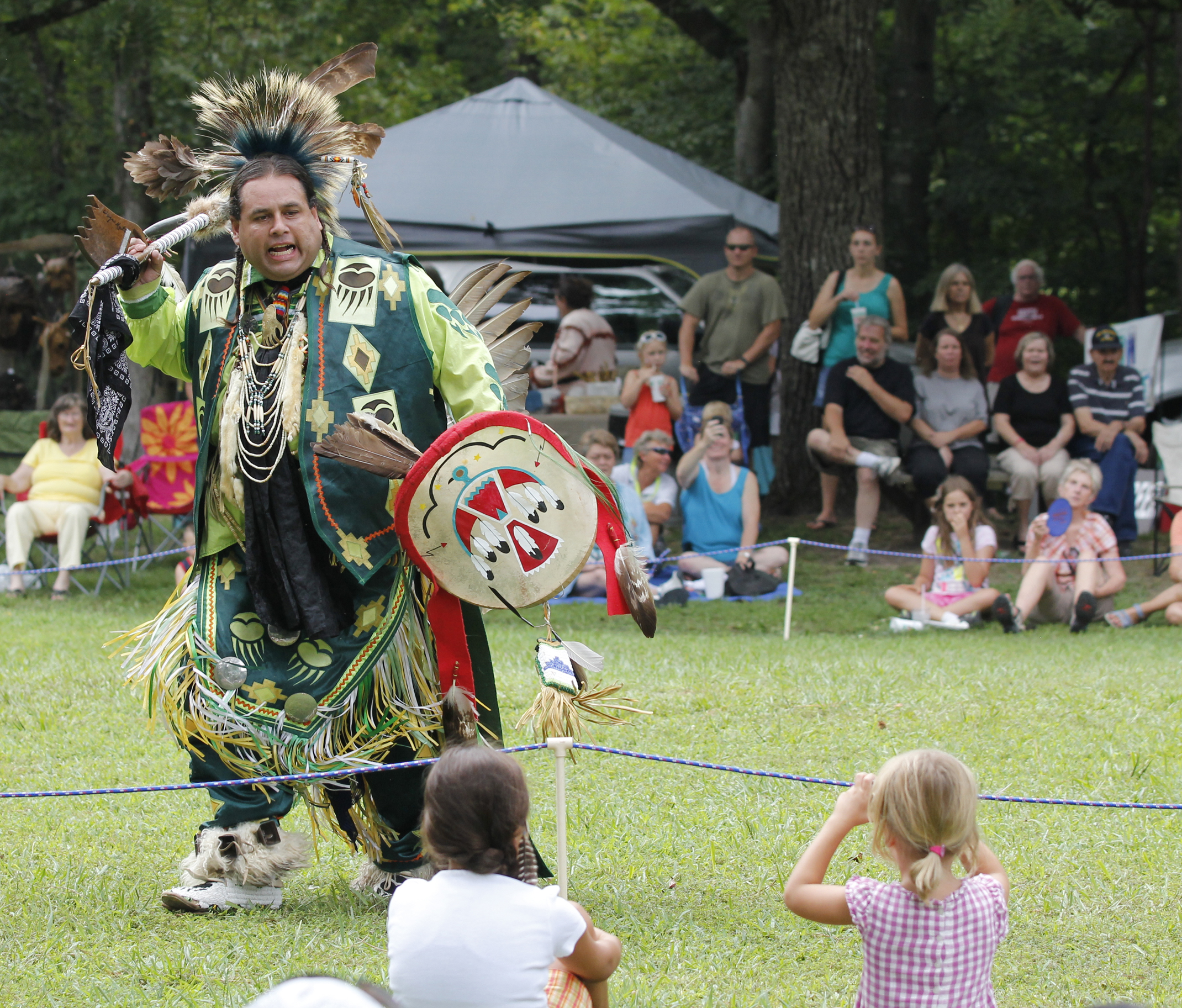 Scott Crisp, a Cherokee Men's Traditional Dancer, performs as audience members look on at the Cherokee Days of Recognition in Red Clay State Historic Area on Saturday. The Cherokee Days of Recognition is an annual celebration that includes living history exhibits, dance exhibitions, traditional foods, and more.
Scott Crisp, a Cherokee Men's Traditional Dancer, performs as audience members look on at the Cherokee Days of Recognition in Red Clay State Historic Area on Saturday. The Cherokee Days of Recognition is an annual celebration that includes living history exhibits, dance exhibitions, traditional foods, and more.RED CLAY, Tenn. - A donation of hundreds of stone tools, weapon points and everyday items significant to local Cherokee history was unveiled Saturday at Red Clay State Historic Area.
Jo Day donated the collection of her late husband, Conrad Day.
"We had them for a long, long time,'' Day said Saturday before a covering was lifted off the glass cases to unveil the artifacts during the 30th annual Cherokee Days of Recognition.
The park is the last Cherokee council grounds before the start of the 1838 removal to Oklahoma known as the Trail of Tears.
The Days of Recognition celebration continues today at the park with food vendors, traditional dancing, arts and crafts, storytelling and music.
Day said her husband was inspired by a Chattanooga Free Press article many years ago to buy the collection from its founder, an elderly man who had picked the items up at the original Bradley Central High School football field and the original downtown First Baptist Church parking lot. Over the years, Conrad Day added more artifacts.
"It's a very eclectic collection,'' said Dr. Robert Michael Abram, of Cherokee, N.C.
From mortars and pestles to a decorative collar called a gorget that recalls a Cherokee myth about the sun, the items range in time from thousands of years ago until the era of white settlers, said Abram, who owns a Cherokee art museum.
Cherokees usually object to items of their ancestors being taken from their original sites, Abram said. "But when it's a surface find and it will likely be destroyed, saving items like these is preserving American history,'' he said.
Outside the park visitors center, Cherokee descendants milled around the vendors' tents or watched the traditional dancing.
Frank and May Prevatte, of Dayton, Tenn., who are members of Friends of Red Clay, sat on the porch of one of the park's cabins.
Frank Prevatte said the event is a time to recognize the Cherokees and others who lived in this region in the past and today.
Prevatte said his ancestry is Lumbee.
"Our name comes from the Lumbee River in North Carolina,'' he said.
The Lumbee were recognized as a separate tribe by Congress in 1958.
"Before that, we just went around as Cherokees,'' he said.